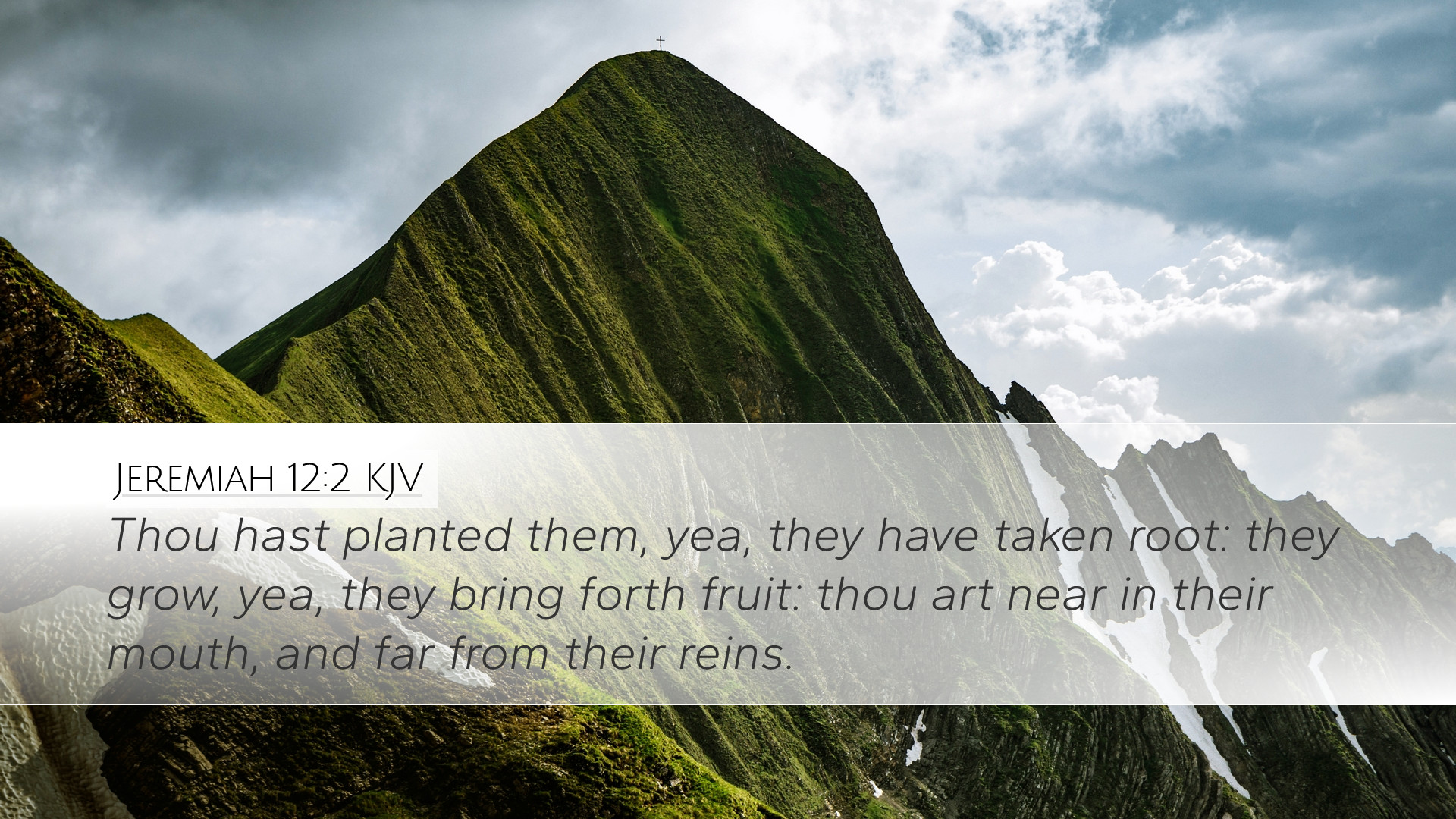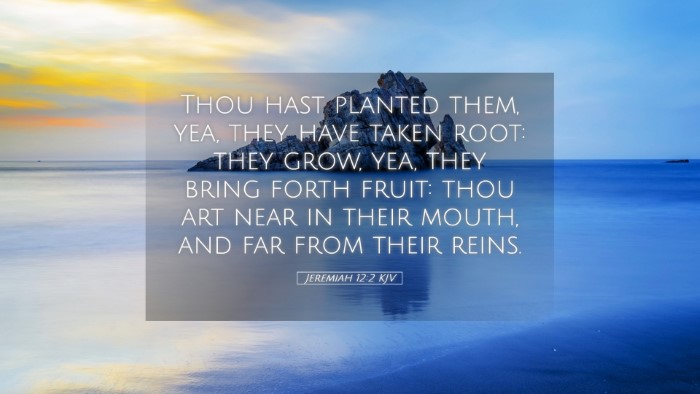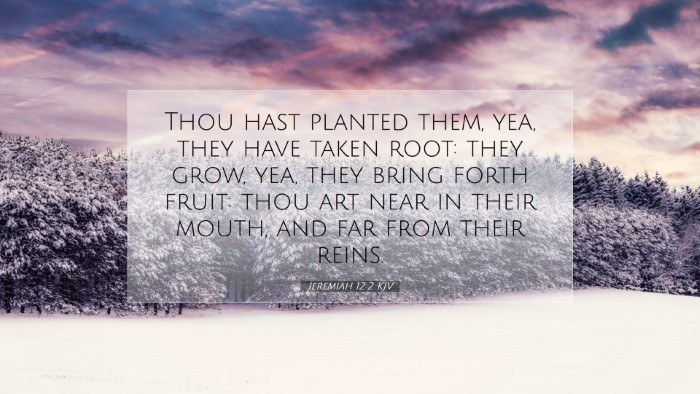Commentary on Jeremiah 12:2
Jeremiah 12:2 states: "Thou hast planted them, yea, they have taken root: they grow, yea, they bring forth fruit: thou art near in their mouth, and far from their reins."
Introduction
This verse reflects profound themes of divine providence, human hypocrisy, and the juxtaposition of outward piety against inward reality. Jeremiah, known as the weeping prophet, articulates a piercing observation regarding the seeming prosperity of the wicked and the spiritual decadence of a people who profess allegiance to God yet lack authentic relationship with Him.
Contextual Background
In the book of Jeremiah, the prophet speaks during a tumultuous time in Israel's history. His words often reflect his anguish over the moral failures of his nation and their consequences. Jeremiah 12 comes as an important reflection on the faithful versus the faithless, illustrating the tension of hope amidst despair.
Verse Analysis
Thou hast planted them
The phrase "Thou hast planted them" signifies God's sovereign act of establishing and nurturing His people.
- According to Matthew Henry, this planting refers to the blessings and privileges bestowed upon Israel, indicating they were destined for growth and prosperity.
- Albert Barnes adds that this planting also implies a divine intention for Israel, designed for fruitfulness in their covenant relationship with God.
Yea, they have taken root
This portion of the verse reflects a deepening of their existence; the roots imply stability and a foundation in faith.
- Adam Clarke notes that deep roots are essential for strength, suggesting that Israel has a relationship with God that should allow them to stand firm.
- Henry remarks that being rooted is indicative of God's care; however, it also highlights a potential for corruption if roots grow amidst evil.
They grow, yea, they bring forth fruit
The imagery of growth and fruitfulness denotes blessings and productivity in the life of a believer.
- Barnes elaborates that the fruit here symbolizes the outward manifestations of one's faith, suggesting that true adherence to God bears visible effects.
- In this context, Clarke emphasizes that growth should lead to a ripening of faith, moving beyond mere appearances towards genuine acts of righteousness.
Thou art near in their mouth
This phrase starkly contrasts the previous descriptions with the sad reality that while God is acknowledged vocally, they are far from a heart relationship with Him.
- Henry observes that the people appear religious in speech, yet their hearts are distant from God's command and covenant.
- Barnes points out the danger of lip service without heart commitment, which ultimately leads to judgment as exhibited in the rest of the book.
And far from their reins
The mention of “reins” refers to the innermost being—the seat of emotions and will—illustrating the disconnect between external profession and internal reality.
- Clarke notes that this disconnection signifies a spiritual deception where the people have cultivated a facade of righteousness devoid of genuine faith.
- Henry echoes this sentiment, suggesting that this verse serves as a warning to all of Israel, not to merely express faith with their mouths but to embody it in their actions.
Theological Implications
Jeremiah 12:2 resounds with theological depth, dealing with themes such as:
- Divine Providence: The planting of Israel by God reflects an intimate involvement in their destiny.
- Human Responsibility: There is an implication that Israel bears responsibility for cultivating their relationship with God beyond just empty words.
- Authenticity in Faith: Challenges the believer to consider the authenticity of their faith, ensuring that their inner life matches their outer expressions.
Practical Applications
This verse urges modern believers, pastors, and theologians to reflect on several practical applications:
- Self-Examination: Regularly assess one’s own heart condition relative to their verbal profession of faith.
- Cultivation of Roots: Invest in deepening one’s relationship with God through prayer, study, and community to ensure genuine growth.
- Fruitfulness in Ministry: Evaluate whether one's ministry produces the fruit of the Spirit or mere activity; seek to align actions with God’s will.
Conclusion
Jeremiah 12:2 offers a sobering reflection on the state of faithfulness among God’s people and stands as a timeless reminder for believers today. With insights garnered from esteemed commentaries, we are challenged to pursue a more profound relationship with God that transcends mere outward appearances. As the church strives to bear fruit that glorifies God, may we continue to root ourselves deeply in Him, allowing true transformation to flow from within.


